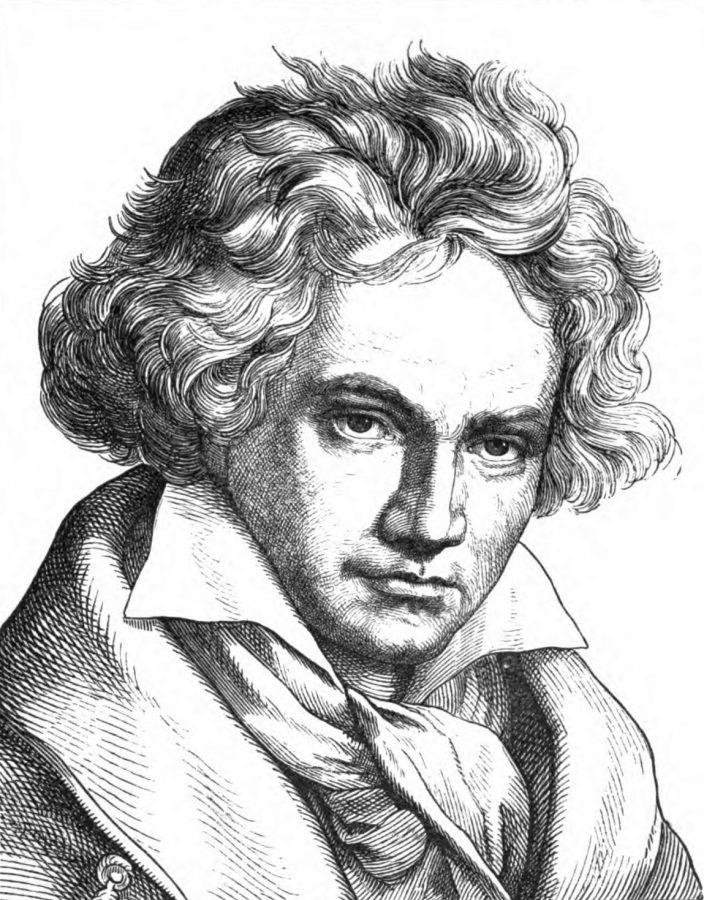New research by Kent professor reveals Beethoven may have heard his final symphony
February 27, 2020
For years, it was believed Ludwig van Beethoven lost the ability to hear before composing one of his most famous symphonies, but new research by a Kent State professor shows Beethoven may have heard his final pieces performed before he died.
Historians believed Beethoven lost his hearing before composing his Ninth Symphony in 1824, but Theodore Albrecht was re-reading some documents that show Beethoven may have been able to hear until 1825.
Albrecht is a professor of musicology at the School of Music and has been teaching at Kent State since 1992. Since coming to Kent, Albrecht has done research into the life of Beethoven.
He has recently been working on translating what are known as “conversation books” that Beethoven used, from German to English. A conversation book was something Beethoven used when he started to lose his hearing that allowed people to write things down since he could not always hear, Albrecht said.
“You’d have a lot of fun seeing the details,” Albrecht said. “[One example is] where he goes to a concert, then he leaves his glasses sitting in the chair. So they have to go back the next week and get them. And [because of] things like this it becomes very human.”
Albrecht got the conversation books from Lewis Lockwood, an American musicologist, who was using them for a different project. Lockwood offered the books to Albrecht, and even though Albrecht had already started a different project, he picked them up. Albrecht started translating the books right away, under the suggestion of Lockwood, even though he did not have a contract yet to fund the research.
With all of the content from the books, Albrecht originally was going to translate only a portion of the conversations, roughly the top 100, but was unable to choose so he translated all of them.
One thing he noticed throughout the books was a few mentions that Beethoven could hear from his left ear between the years of 1816 and 1825.
“What’s interesting about the conversation books is that there are entries where people are writing to him before they set out for the concert,” Albrecht said. “When he leaves the [apartment] to go to the first performance of the Ninth Symphony, … there are no conversation entries except one … [which] means that he could hear during the concert.”
Albrecht said finding this information and other details in the conversation books is “just more fascinating than he can express”.
Albrecht is currently working on volume 8 of what he believes will be a total of 12 volumes. As he has been translating the conversations into English, he has found some incorrect translations and misplaced pages.
“It’s at best a detail,” Albrecht said. “The heaven and earth aren’t gonna come crashing down, but it’s just one more element of getting these things right because sometimes it takes more than one time, and more than one person, to see something.”
Before working on the conversation books, Albrecht had a three-volume piece published in 1996 titled “Letters to Beethoven”. He is also working on researching a list of performers who performed a large portion of Beethoven’s music and is hoping to turn the research into a book and eventually have it published.
Contact Rachel Karas at [email protected].












